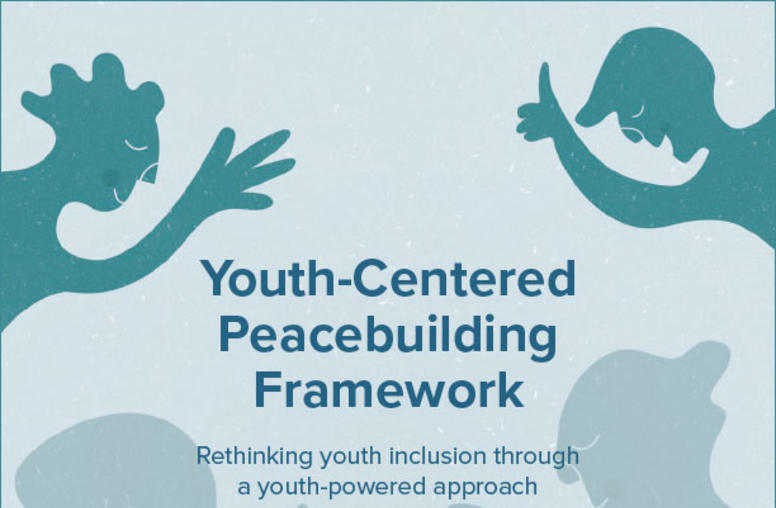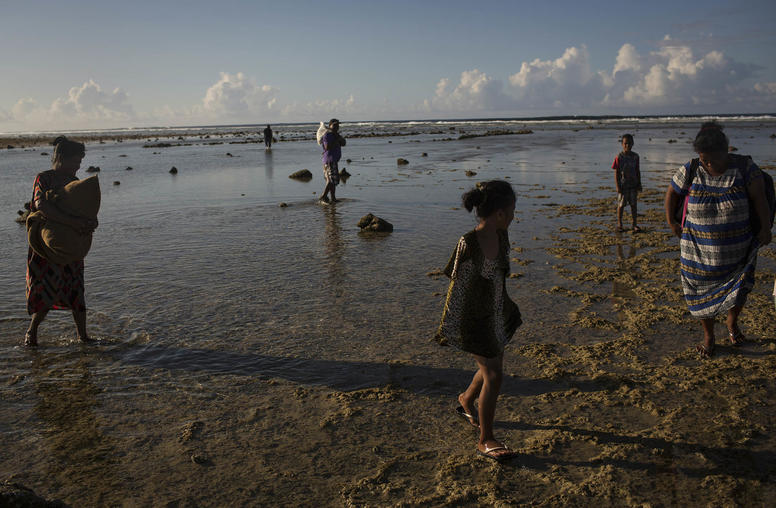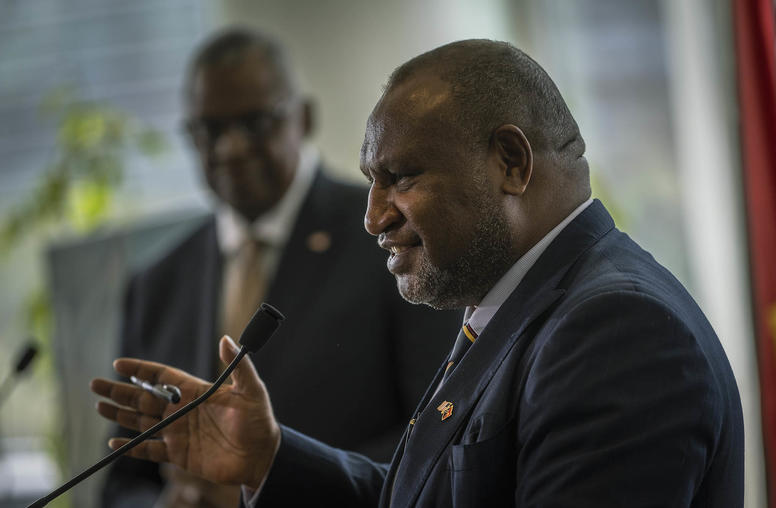Publications
Articles, publications, books, tools and multimedia features from the U.S. Institute of Peace provide the latest news, analysis, research findings, practitioner guides and reports, all related to the conflict zones and issues that are at the center of the Institute’s work to prevent and reduce violent conflict.

Ukraine’s New U.S. Lifeline: Why It’s Vital and What’s Next
This week’s U.S. approval of nearly $61 billion in funds for Ukraine’s defense is a lifeline in the Ukrainians’ struggle against Russia’s unprovoked invasion and the assault on peace and rule of law in Europe and beyond. Ukrainian troops have been rationing ammunition, their lack of defensive missiles has exposed Ukrainian cities to Russian aerial attacks — and many military analysts predicted a probable collapse on part of Ukraine’s eastern defensive lines. While this U.S. action boosts Ukrainians’ capacities and morale, ending this war will need further funds, forces and security measures for those fighting and suffering for their survival — and for the redemption of international peace through rule of law.

Stability in West Africa: Working With Nigeria’s State Governments
As coups and other setbacks have stymied military-led efforts to stem upheavals in West Africa and the Sahel, a potent new constituency of leaders has just gathered to plan nonviolent strategies to stabilize their own core area of the region: northern Nigeria. In West Africa’s demographic giant, economic crisis is exacerbating intercommunal conflicts, crime and other violence — and Nigeria’s federalism gives vital roles to its states in addressing roots of these problems. Ten recently elected state governors gathered in Washington last month with peacebuilding and development experts, business leaders and senior U.S. officials; they resolved to strengthen and coordinate state-level stabilization strategies — an initiative that international partners should support.

Why Counterterrorism in Afghanistan and Pakistan Still Matters
From wars in Ukraine and the Middle East to rising tensions in the South China Sea, there is no shortage of crises to occupy the time and attention of U.S. policymakers. But three years after the U.S. withdrawal from Afghanistan, the threat of terrorism emanating from South Asia remains strong and policymakers need to be more vigilant. Indeed, at the end of March, an Afghanistan-based affiliate of ISIS launched a devastating attack outside of Moscow, killing over 140 people.

Youth-Centered Peacebuilding Framework
The Youth-Centered Peacebuilding Framework is a functional guide that proposes an actionable approach for the centering of youth in peacebuilding interventions. The guide operationalizes the concept of youth participation, starting from core principles and moving to practical guidance and specific action steps for meaningful youth engagement at different stages of a peacebuilding project.

Transnational Crime in Southeast Asia: A Growing Threat to Global Peace and Security
Organized crime is a significant driver of conflict globally. It preys on weak governance, slack law enforcement, and inadequate regulation. It tears at the fabric of societies by empowering and enriching armed actors and fueling violent conflict. In Asia, criminal groups prop up corrupt and dangerous regimes from Myanmar to North Korea, posing a direct threat to regional stability.

Senior Study Group on Counterterrorism in Afghanistan and Pakistan: Final Report
When announcing the US withdrawal from Afghanistan in April 2021, President Joe Biden identified counterterrorism in Afghanistan and Pakistan as an enduring and critical US national security interest. This priority became even more pronounced after the Taliban’s return to power in August 2021, the discovery of al-Qaeda’s leader Ayman al-Zawahiri in Kabul less than a year later, and the increasing threat of the Islamic State of Khorasan (ISIS-K) from Afghanistan. However, owing to the escalating pressures of strategic competition with China and Russia, counterterrorism has significantly dropped in importance in the policy agenda.

For the Marshall Islands, Nuclear Remembrance Day Is a Painful Reminder
Between 1946 and 1958, the United States detonated 67 nuclear and thermonuclear weapons in the Marshall Islands, a legacy that is commemorated today on the 70th anniversary of the Castle Bravo hydrogen bomb test. This nuclear legacy still reverberates in the Marshall Islands today, straining its relationship with Washington and creating a fissure that Beijing is exploiting as it seeks to increase its regional influence.

Jason Tower on the Dangerous Proliferation of Scam Compounds in Southeast Asia
Chinese crime syndicates have set up sophisticated online scamming operations throughout Southeast Asia that rake in an estimated $64 billion a year. Relying on forced labor, the scam compounds “look almost like penal colonies,” says USIP’s Jason Tower, adding: “This is happening on an industrial scale.”

Why the Pacific Islands Is Seeing a Rise in ‘Defense Diplomacy’
As strategic rivalry between China and the United States has intensified in recent years, the Pacific Island region has become a key arena for this geopolitical competition. Pacific Island countries are receiving more bilateral visits, new diplomatic missions, increased media attention and offers of development and security assistance from a greater number of states outside the region than ever before.

Riots in Papua New Guinea Are a Warning: Urgent Change is Needed
Riots erupted in Papua New Guinea's capital yesterday, laying bare the hollowness of governance that is failing to meet public needs, thus risking deeper violence and instability. U.S attention to the Pacific Islands' largest and most populous nation is increasing, partly because it is an arena for geopolitical competition with China. While Papua New Guinea's leaders are good at rolling out the red carpet for visiting partners, the state fails lamentably in providing basic services for its people. This week’s violence is a wake-up call for U.S and international policymakers to re-focus on this root of the country’s instability.